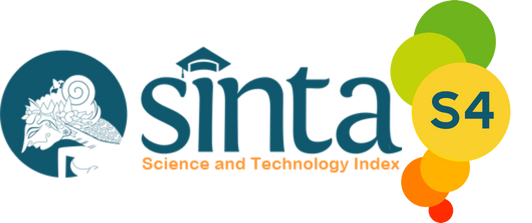Penerapan potensi lokal dalam Pembelajaran IPA di Sekolah Menengah Pertama
DOI:
https://doi.org/10.52434/jkpi.v5i2.41916Abstract
This study aims to analyze the implementation of local potential as a contextual approach in science learning. This research uses a qualitative approach with data collection techniques in the form of literature reviews from various scientific sources and educational policies. The review results show that local potentials, such as school gardens, home industries, and the surrounding natural environment, are utilized to teach science concepts such as ecosystems, matter and its changes, energy, environmental pollution, and other science topics. Learning strategies that can be applied include project-based learning, field visits, and direct observation, which align with the principles of the Merdeka Curriculum and the scientific approach. This implementation increases student enthusiasm, active engagement, and stronger conceptual understanding. On the other hand, there are obstacles such as limited resources to support major science concepts, the unavailability of modules based on local potential, and the lack of teacher training on local potential. The teacher's role as a learning innovator is key in packaging local potential into relevant teaching materials. Positive impacts are also seen in the strengthening of Pancasila Student Profile values, such as mutual cooperation, environmental awareness, and appreciation of local culture. This study recommends strengthening teacher capacity, policy support, and the provision of contextual learning resources to optimize the integration of local potential in science learning.
Keywords: local potential, science learning, Merdeka Curriculum, Pancasila Student Profile
Downloads
Published
Issue
Section
License

Ciptaan disebarluaskan di bawah Lisensi Creative Commons Atribusi-BerbagiSerupa 4.0 Internasional. Penulis yang menerbitkan dengan jurnal ini setuju dengan ketentuan berikut:
- Penulis mempertahankan hak cipta dan memberikan hak penerbitan pertama kepada jurnal dengan karya yang secara bersamaan dilisensikan di bawah Lisensi Attribution-ShareAlike 4.0 International (CC BY-SA 4.0) yang memungkinkan orang lain untuk membagikan karya tersebut dengan pengakuan kepenulisan karya dan publikasi awal dalam jurnal ini.
- Penulis dapat membuat pengaturan kontrak tambahan yang terpisah untuk distribusi non-eksklusif dari versi jurnal yang diterbitkan dari karya tersebut (misalnya, mengunggahnya ke repositori institusional atau menerbitkannya dalam buku), dengan pengakuan publikasi awal dalam jurnal ini.
- Penulis diizinkan dan didorong untuk memposting karya mereka secara online (misalnya, di repositori institusional atau di situs web mereka) sebelum dan selama proses pengiriman, karena hal ini dapat mengarah pada pertukaran yang produktif, serta sitasi yang lebih awal dan lebih besar dari karya yang diterbitkan (Lihat Efek Akses Terbuka).













